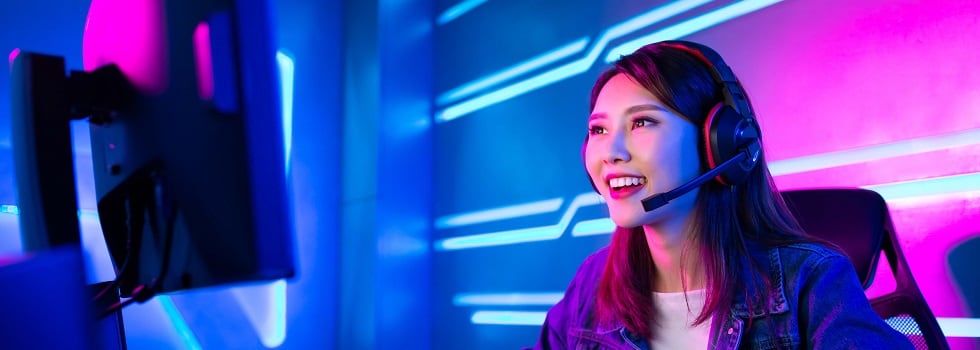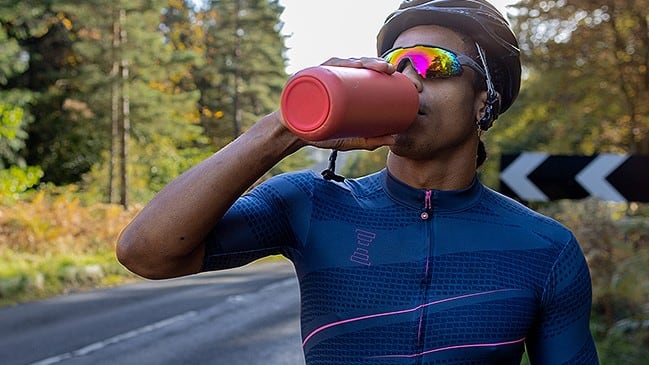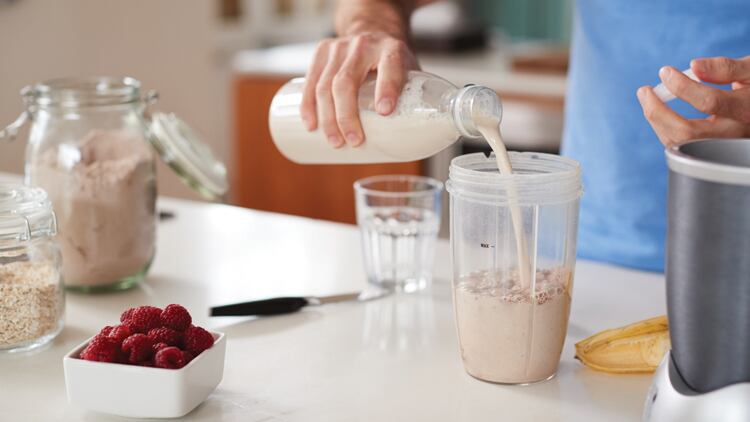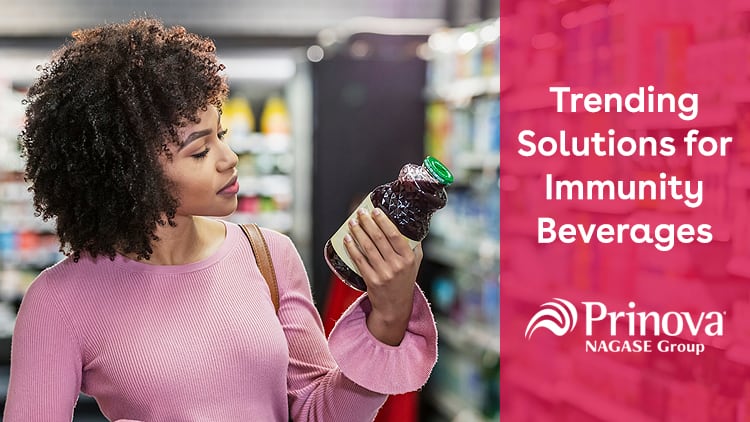New opportunities for nootropics
More and more shoppers are seeking out ways to boost the brain. Research carried out in 2021 shows that 66% of consumers globally are now interested in cognitive health products, up from 53% three years earlier.[1]
As a result, there is growing demand for nootropics among a wide range of demographic groups. Nootropics are cognitive enhancers that can be incorporated into food, drink and supplements to help improve functions such as focus and memory. They usually combine ingredients that work in synergy to enhance cognitive performance, reduce stress and fatigue, and deliver improvements in mood and productivity.
Mintel has described beverages as “the obvious conduit” for nootropics due to their ability to be digested more quickly than food, allowing them to boost the brain more rapidly.[2] With the market still very much in its early development phase, nootropic drinks are shaping up for substantial growth in the coming years.
Brain-boosting benefits across different formats
At present, most nootropics are sold as capsules, tablets and soft gels. As the trend gathers pace, though, there are growing opportunities to add brain-boosting benefits to a range of functional drinks
Energy drinks
Between April 2019 and March 2020, 14% of all energy drink launches in Europe featured a functional claim around the brain and nervous system.[3] Caffeine is currently the most widely used nootropic across all beverages. Mintel suggests these drinks’ appeal could be increased by combining small doses of caffeine with additional nootropic ingredients for a ‘360 degree’ brain boost.[4]
Gamer drinks
Available in canned and powdered formats, gamer drinks help players maintain peak performance by boosting cognition and mental focus. A report on the gaming nutrition market published by data insights company Nutrition Integrated found that there is scope for greater innovation in gamer drinks, going beyond caffeine to explore further cognitive benefits.[5]
Juices
Juice drinks accounted for 14% of European beverage launches featuring brain and nervous system claims between June 2019 and June 2021.[6] There may be opportunities for more nootropic launches in this category, too, with 66% of European shoppers saying they are interested in juice drinks that have been customised to meet their individual nutrition needs.[7]
Gummies
As a highly convenient format, vitamin gummies can provide a good alternative to beverages. Chewable vitamins are now the most common way for American adults aged 35 and younger to consume supplements.[8]
On-trend nootropic ingredients
Here is a selection of some of the scientifically backed ingredients that are leading the way in the nootropics market:
Ashwagandha
One of the most ancient herbs in Ayurvedic medicine, with benefits including improvements to memory and cognitive functions.
Shagandha™ is an ashwagandha root extract that meets the U.S. Pharmacopoeia-National Formulary (USP-NF) monograph and is verified by prominent botanical testing labs. It is ideal for nootropic products due to its ability to offer a wide range of cognitive health benefits.[9],[10]
Curcumin
In 2018, curcumin was officially established as a nootropic following the publication of a University of California study that showed significant improvements in memory for subjects who took supplements for 18 months.[11] Brain imaging in study participants revealed that curcumin had lowered levels of amyloid and tau – the two proteins involved in Alzheimer’s disease.
Curcumin C3 Complex® is an extract derived from roots of the turmeric plant. A study with Curcumin C3 Complex, combined with a black pepper absorption booster BioPerine®, showed a reduction in an important inflammatory cytokine in traumatic brain injury patients.
Bacopa
Used in Ayurvedic medicine, this herb promotes nerve impulse transmission in the brain.[12]
Bacopin® is obtained from the leaves of the bacopa plant and facilitates enhanced attention, memory and cognitive processing, resulting in enhanced working memory.
Selenium
Selenium is an antioxidant trace mineral associated with reduced mental fatigue. It is involved in various brain functions, including motor performance, coordination, memory and cognition.[13]
Containing a minimum of 40% elemental selenium, Selenium SeLECT® is a bioavailable and safe form of selenium for supplements. Unlike other forms of the mineral, it is a unique single chemical entity containing integrated selenium in place of sulphur in the amino acid methionine. It is directly incorporated into proteins in the body.
Lutein and zeaxanthin
For gamers and those who work with computers, eye health is another important concern. Lutein and zeaxanthin can filter harmful high-energy blue wavelengths of light and help protect and maintain healthy cells in the eyes. Several studies have suggested that dietary supplementation with lutein and zeaxanthin could protect the retina and delay the progression of age-related macular degeneration.
ZeaLutein® is a natural phytocomplex of 1% zeaxanthin, 5% lutein, and 2% piperine, blended in a ratio optimised to provide maximum benefits for eye health.
Nootropic drinks ready to make a splash
Nootropics appeal to a wide range of consumers, including busy professionals, students, athletes, gamers and parents.[14] As a result, demand has been rising sharply: between 2015 and 2019, the number of nootropic product launches increased by an average of 70% per year globally.[15]
With the nootropic beverage market growing year on year, there are now huge opportunities to create innovative new drinks to serve these target groups. Prinova can work with you from start to finish to bring your ideas to life, providing the market knowledge, branded ingredients and on-trend formulations you need to set your nootropic beverages apart.
[1] FMCG Gurus 'The Growing Importance of Cognitive Health' (2021)
[2] Mintel 'Nootropics are the future of functional drinks' (2020)
[3] Mintel GNPD (2021)
[4] Mintel 'Nootropics are the future of functional drinks' (2020)
[5] Nutrition Integrated 'Gaming Nutrition – A Leap Into The Virtual World' (2021)
[6] Mintel GNPD (2021)
[7] FMCG Gurus 'Beverage Trends in 2021' (2021)
[8] Business Insider 'The weird science behind stuffing a sugary gummy treat full of vitamins' (2020)
[9] Chandrasekhar, K., Kapoor, J. & Anishetty S. 'A prospective, randomized double-blind, placebo-controlled study of safety and efficacy of a high-concentration full-spectrum extract of ashwagandha root in reducing stress and anxiety in adults' Indian Journal of Psychological Medicine (2012)
[10] Choudhary, D. et al. 'Efficacy and Safety of Ashwagandha (Withania somnifera (L.) Dunal) Root Extract in Improving Memory and Cognitive Functions' Journal of Dietary Supplements (2017)
[11] Small, G.W. et al. 'Memory and Brain Amyloid and Tau Effects of a Bioavailable Form of Curcumin in Non-Demented Adults: A Double-Blind, Placebo-Controlled 18-Month Trial' The American Journal of Geriatric Psychiatry (2018)
[12] Aguiar, S. & Borowski, T. 'Neuropharmacological review of the nootropic herb Bacopa monnieri' Rejuvenation Research (2013)
[13] Solovyev, N.D. 'Importance of selenium and selenoprotein for brain function: From antioxidant protection to neuronal signalling' Journal of Inorganic Biochemistry (2015)
[14] Mintel 'Dads are a vital audience for sports and energy drinks' (2021)
[15] Nutrition Insight 'Brain Boosters: The Rise of Natural Nootropics in the Emerging E-gamers Segment' (2020)








